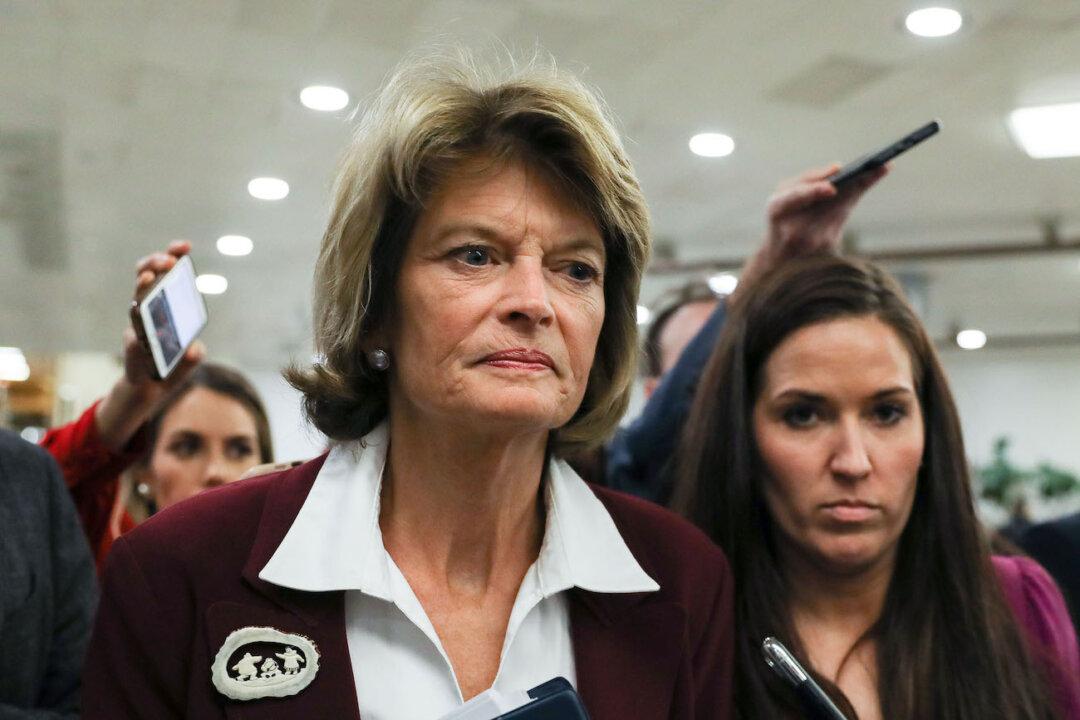President Donald Trump on Thursday said he would endorse any candidate who would run against Sen. Lisa Murkowski (R-Alaska) after the senator came out in support of a statement from former defense secretary James Mattis that heavily criticized Trump.
Murkowski, a swing-vote senator, had told reporters earlier on Thursday that she is “struggling” with the idea of voting for Trump, and said that Mattis’s recent public statement was “true and honest and necessary and overdue.”




